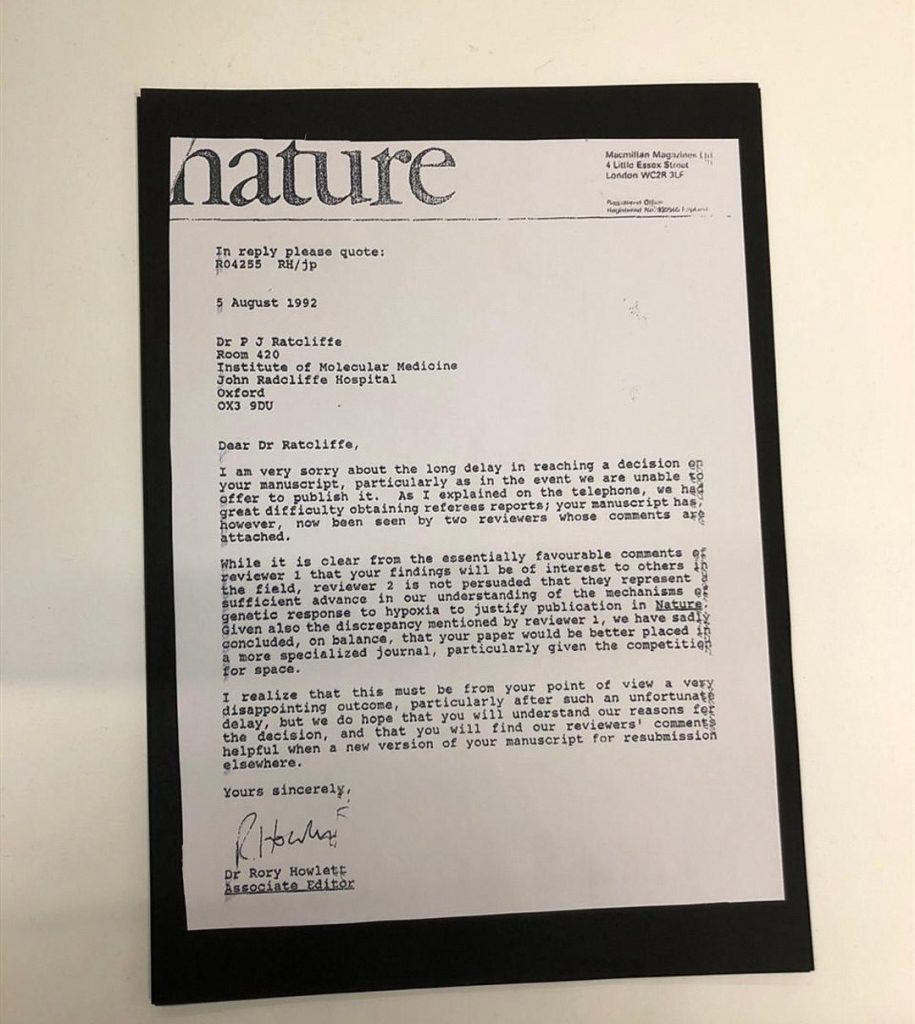Short version: An interesting question to reflect on, a mantra I find useful, another reason to avoid diabetes, the Nobel Prize rejection, and making my phone less distracting.
What would it take to change your mind?
I’ve been thinking about this question recently. In many ways our beliefs about the world, what we hold “in mind”, is intertwined with our identity. How those ideas form, and how they can be changed, informs who we are and how we act. I have not spent much time thinking about what specific influences would be required to change my beliefs. I would like to think that, as a scientist, I am willing to “turn on a dime” in response to strong evidence, but what specifically constitutes strong evidence?
On a population level changing minds is critical to governance. Journalist Carole Cadwalladr gave a TED talk with some fascinating images; advertisements run on Facebook that she suggests influenced Welsh citizens to vote against their own interests on the Brexit referendum. I wonder if those citizens would be able to identify what caused them to be so fearful of hypothetical Turkish migrants (specifically) or the EU (generally), and what evidence or experiences they would now require to lose those fears.
I would suggest you try the thought experiment (and would love to hear your thoughts!). Consider what might cause you to change your mind on beliefs that you hold at different strengths. What might make you change the political party you feel aligned with? Your religious views? Views on climate change? On who you are? At the moment my own thoughts are quite confused, but I find the exercise interesting.
A useful mantra
When trying to understand why someone has acted to cause you harm, I find it useful to remember the order of these three causes:
Apathy. Incompetence. Malevolence.
I realised that it is very rare that a negative occurrence is the result of malicious intent, but often we suspect that cause. I’ve explained my thoughts (and the three word reminder above) a couple times in person in recent weeks.
First for something malicious to occur someone needs to care enough to do consider a malicious act and then act on that thought. Most people just do not give significant thought to others, and generally people err on the side of inaction. Even when a relationship is positive and significant, the frequency of thinking of doing something good translating into actually doing it is relatively low, and most people only have a small number of such intense relationships. Consider how many such strong relationships you have, compared with how many people you cross paths with regularly, and this can likely be extrapolated to others. Just as apathy may cause you to thoughtlessly inconvenience one of these people, so too might their apathy inconvenience you. (There is a related punchline in a joke about gun ownership I rather enjoy: if you are buying a gun for personal defence you must (absurdly) have a high opinion of yourself that anyone cares enough about you to try and attack you).
Second, much of the time when we try to influence the world we make mistakes and influence it in an unintentional way. Just as a good intention can produce a bad outcome, so too does an attempt to manifest a bad intention have a chance of producing a good outcome, or no outcome at all. Since most people tend not to practice malicious acts regularly (I hope), then most people even if attempting to cause harm will do so poorly. More often people trying to be good may fail, and therefore accidentally cause harm. The harm is caused by incompetence rather than malice.
Finally, only if apathy and incompetence are considered and ruled out should we consider ill will. Our mind rushes to this conclusion first, stories we learn from an early age arrange themselves around characters acting in opposition, “good” vs “bad”. It is more comfortable to consider a simple and ordered narrative where people are competent and their actions match their intentions, rather than the complex disordered reality where the two are often not coupled. We are at the centre of our own misfortune, and so assume people can see what we do and must therefore notice and care about our strong emotion. Ultimately these are misguided assumptions.
Remember, when next bitterly considering why you were wronged, the likely reason is Apathy, then Incompetence, and only then, Malevolence.
Diabetes and Alzheimer’s
Diabetes is a prevalent disease in the developed world, and can partially be addressed through lifestyle interventions, like maintaining a healthy diet (and hence weight) and exercising. If there weren’t already enough reasons to avoid diabetes, I’ve recently come across the term “type-3” diabetes, an alternate name for Alzheimer’s disease, due to similarities between the diseases and correlation between Alzheimer’s disease and type-2 diabetes.
Nobel Prize Winner’s Nature Rejection Letters

This week the Nobel Prizes were announced, including one for Peter J Ratcliffe, for his work on hypoxia. I’ve seen some tweets sharing a letter to Ratcliffe declining to publish a paper from him. The message is often one of encouragement to persevere in the face of criticism, or that Nature has made a serious blunder by not publishing the work.
The assumptions here are interesting. Ratcliffe’s Nobel Prize indicates a significant contribution, but it does not mean that every paper he wrote warranted publication at all, let alone publication in any specific journal. Perseverance is naturally a requirement for success in a field (trivially if you quit before you succeed you cannot succeed), but that perseverance needs to include a willingness to adapt to both criticism and praise from peers, not blindness to it (though that adaptation can also be bolstering evidence and pushing back against the criticism, rather than conceding to it). Finally the publisher here (Nature) is responding to the comments of the reviewers who would be other researchers in the field (peers), rather than merely dismissing the work, which I feel can be lost in the suggestion that Nature made a mistake not publishing the work: they were following the procedures which fundamentally led to their success and prestige as a journal.
As an aside: Ratcliffe ended up having 28 papers (to date) in Nature family journals, of which 3 are in nature itself, so I doubt anyone is holding a grudge.
Phone Distractions
I wrote about changing my search engine, and while some tasks now take longer I have adapted and think there is some improvement to the content I consume. This week, at a friend’s suggestion, I switched my phone to monochrome (greyscale), in an attempt to make it less visually alluring. I am surprised how effective such a small change is, the content is the same, but the stimulus is reduced, and it makes it easier to moderate my time mindlessly scrolling.
Oxford Half Marathon
This week I ran the Oxford half marathon, and while at the moment I am still overdue on the Blenheim Palace half race report, I’m hoping to write both and update the respective blog posts soon.



One Reply to “2019 Week 41: Changing your mind”